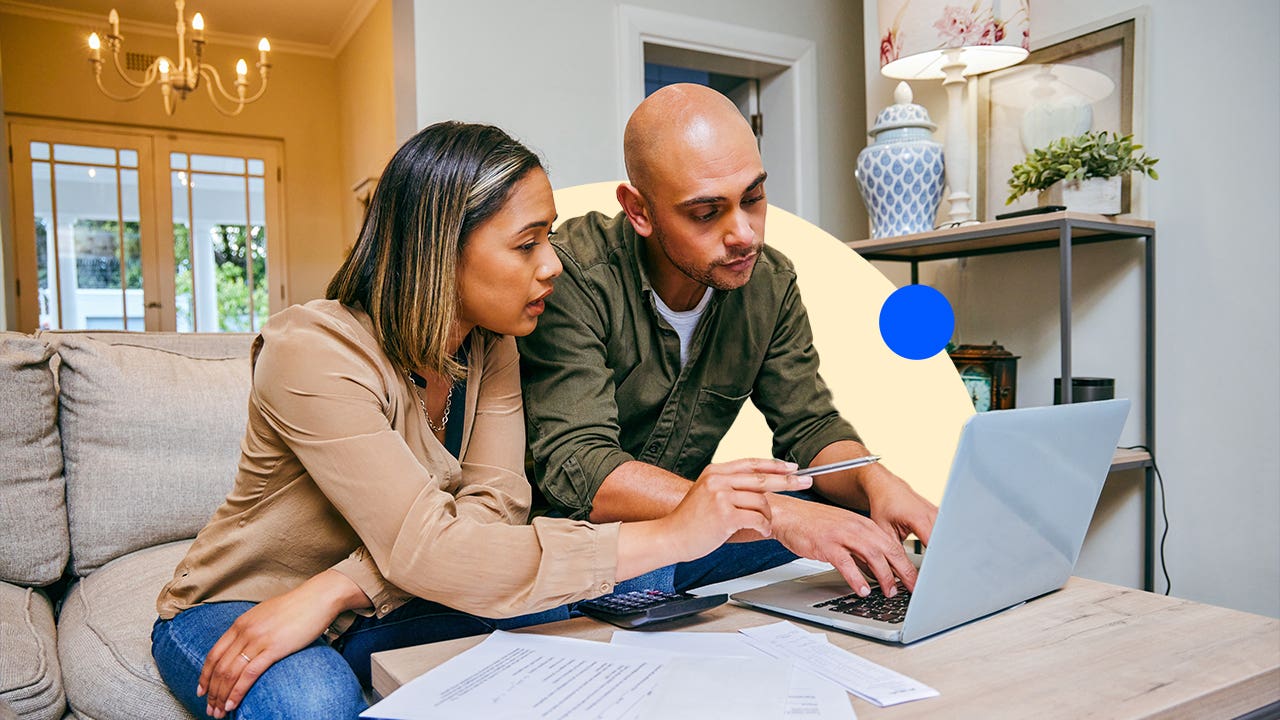
Moyo Studio/GetTyimages; Illustrations by Hunter Newton/Bankrate
When applying for a personal loan, the lender will request some documents to verify your personal and financial information before making a loan decision. Each lender has its own application and eligibility requirements, but most require similar documents.
Knowing which documents are needed and preparing them before applying will help you increase your chances of approval and receive your funds more quickly.
1. Application form
All lenders must fill out an application to get approved for the loan. If you are borrowing from an online lender, the process will take place entirely online. If you are applying for a personal loan with a local bank or credit union, you may be able to complete the application directly with the bank representative.
The application probably looks slightly different from lender to another lender, but it usually asks for information such as:
- Your full name
- contact address
- Address history
- date of birth
- social security number
You will need to select the amount of your loan, answer questions about the purpose of the loan, and provide financial details regarding your monthly income, bills and obligations.
2. Proof of identity
The lender must verify your identity and approve the loan. Typically two forms of identification are required, and acceptable documents include:
- Birth certificate
- Citizenship Certificate
- driver’s license
- Military ID
- passport
- Social Security Card
- State Issued ID
The lender must be able to read your ID. Take clear photos with your smartphone or use a scanner to avoid delays.
3. Employer and Income Verification
Your personal loan lender will depend on your income to determine how well you qualify. There is no need to make collateral to support unsecured personal loans, so you need to prove that a steady flow of verifiable income is approved.
If you are traditionally employed, you can check your income in a number of documents, such as:
- Pay the stub
- Tax Return
- W-2 and 1099
- Bank Statement
- Employer contact information
If you are a self-employed, you may need one or all of the following documents:
- Bank Statement
- The past two years 1099
- Tax returns for the past two years
If you are working for a regular employer, you may have access to payroll stubs and tax forms through the payroll provider’s online database. Please also contact the Human Resources Department or the Ministry of Salary. Self-employed applicants may need to work with a CPA or other tax professional to help them collect the required tax forms.
4. Address proof
You must provide proof of information regarding your current address and the duration of your residency there. You may not be eligible if you move a lot or just move to a new area. If you have recently moved, you may need to provide information about your previous address as well. Some lenders may require specific documents, but you can generally use one of the following:
- Utility Invoice
- Lease or rental agreement
- Mortgage Statement
- Proof of insurance for your home or vehicle
- Voter Registration Card
- Property tax receipt
- Bank or credit card statement
If you need to confirm your address change, the US Postal Service will provide you with resources to help you. The fastest and easiest way to do this is online, but you can also visit your local post office and fill out the form directly.
5. Bank account information
Most lenders deposit your loan fund directly into your account, so you will need to provide your bank account information. You may also need to set up automatic payments through your bank to get the best personal loan fees.
Applying to a current financial institution will be useful information. If you choose to work with a new lender, prepare for the following:
- Bank’s name
- Routing Number
- Check your account number
- User ID and password to your account (to verify your account through the lender’s secure system)
Other information that lenders use to approve your loan
Once you apply, the lender will approve the loan and consider several factors when deciding on the fee to offer.
What happens if I don’t have the required loan documents?
You may not be totally lucky. Depending on what is missing, lenders may offer alternative verification methods.
For example, if you don’t have a handy stub, lenders can contact their employer directly to check their income information and check their bank statements for electronic deposit proof. If your income is deposited directly, some lenders can view your income information through your bank.
However, if you don’t have the necessary documents, it can lead to delays and utter denials. If you are missing documents, please inform your lender immediately to determine if there is a way around the issue.
Conclusion
Collecting the information and documents you need before applying for a personal loan will save you time and avoid potential funding delays. Make sure all documents are readable and provide them with the documents as soon as possible to speed up the process.
Not all lenders have the same requirements, so make sure you are aware of general document standards before applying them. Preparing will increase your chances of approval and allow you to receive funds more quickly.










